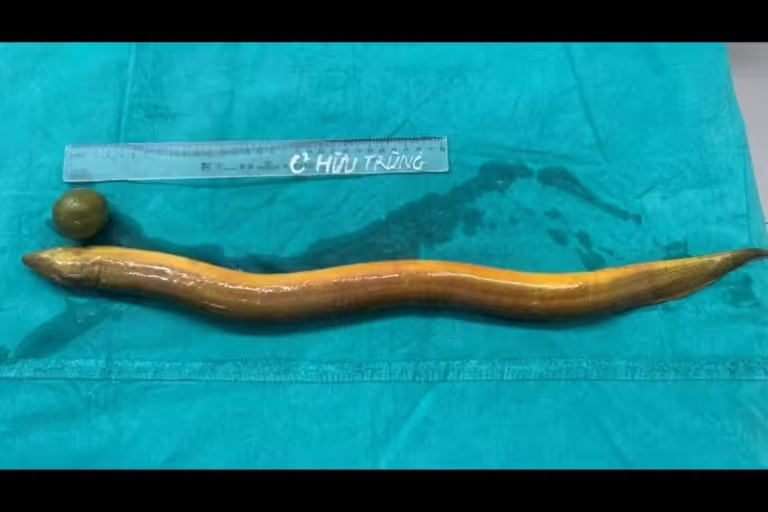Doctors in Vietnam reported a horrifying experience in which a patient had a two-foot eel lodged in his anus and had his intestines nibbled away. Surgeons were able to save the man’s life and remove the eel, but they also had to remove part of his colon. It’s a bizarre real-life event that sounds like something out of a trailer for an upcoming movie. Alien: Romulus movie.
Hanoi’s Viet Duc University Hospital reported the body horror incident late last month. On July 27, a 31-year-old man from India visited the emergency room complaining of severe abdominal pain. According to the hospital, the man quickly admitted to inserting a large eel into his anus. Imaging tests were quickly conducted to confirm the presence of the eel, after which a colonoscopy was arranged to remove it from the rectum. However, doctors discovered a complication: the man had also inserted a lemon into his anus, apparently to stop the eel from escaping when it emerged.
As the man’s pain continued to worsen, the medical team performed emergency abdominal surgery and retrieved the eel from the other side. Upon opening the man’s abdominal cavity, the team discovered that a large eel (2 feet long and about 4 inches in diameter) had bitten its way into his abdominal cavity. The doctors pulled out the eel, popped out the lemon, and were able to seal the gaping hole in the man’s colon without much difficulty. However, the man’s abdominal cavity was already flooded with waste, so to stop more waste leaking out of the stitched wound, the doctors decided to also remove part of the upper part of his colon.
The hospital report doesn’t say what the man did, but it notes that people, especially young men, are tempted to seek sexual pleasure from foreign objects inserted into their anus. And while this may be the first case of eel anal insertion encountered by doctors at the hospital, it’s surprisingly not the first case discovered in Vietnam this year. Earlier this March, doctors at another hospital in Vietnam reported removing a 12-inch eel from a man’s abdomen, which also likely entered through the anus. A doctor in Hong Kong reported another case of anal eel 20 years ago.
Le Nhat Huy, deputy director of the Colorectal Surgery Center at Viet Duc University Hospital, says eels can live in anaerobic (oxygen-free) conditions for quite some time and can pierce the digestive tract. Huy adds that under no circumstances should one try to shove an eel or any other animal up one’s anus, given the unpredictable consequences. To which I say: “There’s absolutely no harm in following that advice, sir!”

